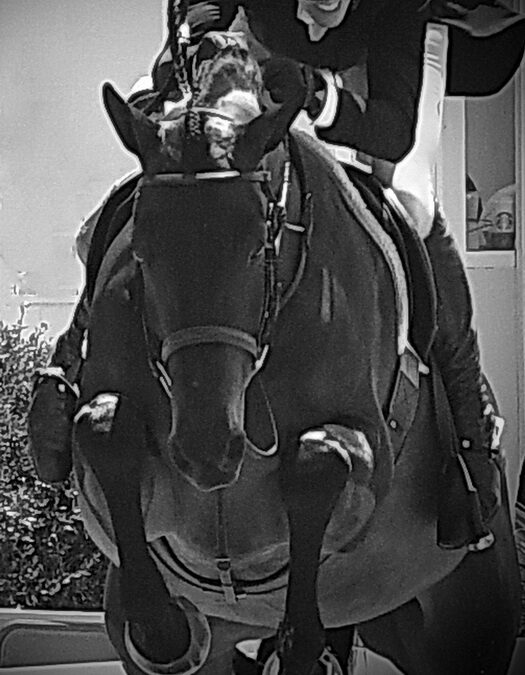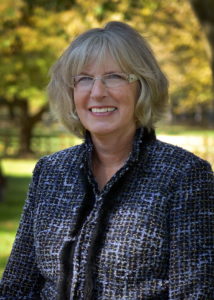How many times have you heard complaints about issues in the sport and what equestrian governance organizations are doing — or not doing — about them? But if all the conversations go nowhere, it’s frustrating. And that applies not only to those who raise the issues, but also to the organizations involved.
The U.S. Hunter Jumper Association, however, has come up with a Town Hall concept that enables members to air their concerns on a regular basis. The series began in April and originally was to end in July, but USHJA President Mary Knowlton said in an interview this week the initiative has been so successful that the forums will continue in August and then monthly through November.
The discussions range along a variety of topics, from the number of jumping classes a horse should be allowed to enter at a show, to how long a horse should be longed, judging concerns, and of course, the cost of showing.
Mary explains one of the reasons for holding the Town Halls by saying, “We need more connections.”
There are matters that must be dealt with. As she points out about one key subject that has been aired at Town Halls, “Social license is an uphill battle. People just don’t understand it. They’re struggling with it.”
It’s a big issue for the FEI (International Equestrian Federation), which is making much of its Equine Ethics and Wellbeing Commission, using the slogan, “Horse First.”
The bottom line is that if the public thinks horses are being mistreated in some way, whether it’s not getting enough turnout, being overused or any other thing they see (even if it’s misinterpreted) they can make trouble for the sport.
Adam Cromarty, an announcer at many equestrian competitions, wrote an article in Horse & Hound predicting that within 10 years, use of spurs and crops will be banned as part of the social license movement. He added he couldn’t vouch for his timeline on such a ban, and I’d guess it will be much, much sooner than he predicted.
As Mary noted, everyone is a cell phone photo or video away from fame on the internet–and that’s not a good thing. Remember the outrage when a coach punched a horse who refused a fence in the jumping phase of the Modern Pentathlon? The outcry led to the equestrian segment of the sport being removed after the Paris 2024 Olympics in favor of an obstacles (on foot) phase, and there is a real question of whether the sport will even be part of the 2028 Olympics.
Many people don’t know the difference between the Olympic horse sports (eventing, show jumping, dressage) and the equestrian part of the pentathlon (an event that also includes running, fencing, shooting and swimming).
The subject of social license is world-wide. Francois Mathy Jr., the vice president of the International Jumper Riders Club, recently addressed the European Parliament’s horse group to explain the high standard of care for competition horses and emphasize their welfare.
He explained, “The reason the human started creating a bond with horses: transport, labor, war; these
reasons are obsolete: the sport and the leisure around the sport are now the only purposes
for the modern horse. Without the sport, his existence would even be threatened.”
Although there have been approximately 90 people participating in the last two USHJA Town Halls, Mary noted that for the most part, “they don’t want to bring up anything; it’s me who brings it up.” At the same time, she pointed out, “This is their meeting. This is not me talking at them, but I find it becomes up to me to choose subjects.”
She added, “I try to keep my ear to the ground as much as I can. It (the Town Hall) connects to our members and makes members realize we are listening to them. We’re open to having conversations.”
At this week’s Town Hall, Florida trainer Don Stewart did raise some issues, including: “Why are the 3-6 divisions continually declining?”
To that, Mary replied, “In general, people seem to want to jump lower and owners seem to want to jump their own horses, rather than having professionals developing them. So it seems to be a continual downslide into 3-3 and 3-foot and lower and lower.”
Don also asked, “Why are the hunter courses getting more and more watered down? ”
Mary addressed that by noting, “There is a huge shortage of hunter course designers right now. Part of this could be just getting more course designers licensed and teaching them what (you) are…expecting from a hunter course?”
At the same time, Don wondered, “Why are we competing for the same prize money as we did in the ’70s?”
Mary said, “The rulebook speaks to how much the minimum prize money can be for all these hunter sections. Finding prize money is not that easy.” On the other hand, she noted the Green Hunter Incentive program and the International Hunter Derby offer a great deal of prize money (as opposed to the regular sections).
One comment came from an anonymous attendee who said riding as an amateur-owner and having her horse showing in a professional division as well “is too costly to do it all.”
That’s an example of the way the cost of horsekeeping and showing often comes up.
“It’s getting more and more expensive for the people who run shows, and of course, that trickles down onto the exhibitor,” Mary said.
“It is crazy how much it costs right now. It’s insanity when a bag of grain is $30.” Not to mention the price of manure removal
Mary noted when those attending the Town Hall don’t come up with topics, it is up to her to choose subjects.
In that regard, she said, “I try to keep my ear to the ground as much as I can” to determine what interests members.
She added one consistent topic is generated by “people who don’t think (hunter) judges are doing a good job.” At this week’s Town Hall, there was discussion of having judges use scribes, so they don’t glance down at their clipboard and miss what’s happening in the ring. However, unlike the situation in dressage, where it is primarily volunteers who are used as scribes, the number of scribes who would be required for multi-ring hunter shows would be cost-prohibitive. A comment from one judge at the Town Hall noted that it would be impossible to use her scoring system if the numbers and notes were entered by someone other than herself.
An exciting development involves the initiative between USHJA and the U.S. Eventing Association to hold their 2025 annual meetings in the same location, so they can share thoughts about common concerns on at least one day of their sessions.
The next Town Hall, June 26 at 7 p.m., will address the base of the sport. Click here to register for the online meeting.
“People asked for it to be called a Grassroots Town Hall,” Mary said.
While there are those who scorn the “lower level,” Mary asks, “Really? Those are people who are fueling our industry. Not everyone is going to be a megamillionaire showing at a really high level.”






